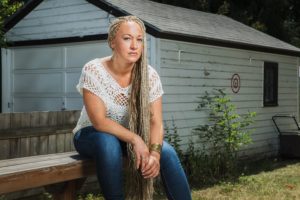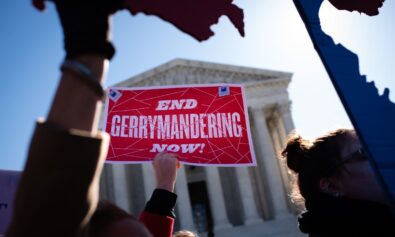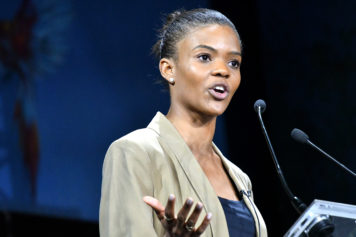Rachel Dolezal, the white woman who was pretending to be Black, has returned to the headlines with an interview in Vanity Fair. Dolezal’s story dominated the media a few months ago with daily updates rife for a reality TV show. Details about her estranged relationship with her parents, her biological brother’s sex abuse charges and her alleged sex tape had surfaced, causing the nation to question her integrity and identity.
Vanity Fair writer Allison Samuels said the media storm adversely affected Dolezal’s life. She had to step down from her position as president of the Spokane, Wash. NAACP chapter. She also lost her job as a professor of Africana studies at Eastern Washington University. Dolezal said she is still reeling and trying to plan her next step.
“I’ve got to figure it out before Aug. 1, because my last paycheck was like $1,800 in June,” she says. “[I lost] friends and the jobs and the work and—oh, my God—so much at the same time.”
However, according to Vanity Fair, Dolezal still insists she is part of the Black community.
“It’s not a costume,” she says. “I don’t know spiritually and metaphysically how this goes, but I do know that from my earliest memories I have awareness and connection with the Black experience, and that’s never left me. It’s not something that I can put on and take off anymore. Like I said, I’ve had my years of confusion and wondering who I really [was] and why and how do I live my life and make sense of it all, but I’m not confused about that any longer. I think the world might be—but I’m not.”
Samuel said whatever people think about Dolezal’s actions, she knows a lot about Black culture. Apart from spending years learning about Black history as a college professor, she has also become an expert in Black hair and this is how she currently earns a living.
“As she figures out where she’ll land next, Dolezal says she is surviving on one of the skills she perfected as she attempted to build a Black identity,” wrote Samuels. “At Eastern Washington University, she lectured on the politics and history of Black hair, and she says she developed a passion for taking care of and styling Black hair while in college in Mississippi. That passion is now what brings in income in the home she shares with Franklin (her son.) She says she has appointments for braids and weaves about three times a week.”
Dolezal says her outing was a “big misunderstanding,” and she is working to rebuild relationships with her friends in the local Black community. However, she has a frosty relationship with Naima Quarles-Burnley, who replaced her as president of the local NAACP chapter.
“I feel that people of all races can be allies and advocates, but you can’t portray that you have lived the experience of a particular race that you aren’t part of,” said Quarles-Burnley in an interview with The Spokesman-Review.
Quarles-Burnley feels Dolezal’s deceit had a negative effect on the Spokane NAACP, which has seen several recent departures.
“I think it has hurt our organization because people are now questioning our integrity,” she said. “Not just the integrity of the former president, but the integrity of the organization as a whole.”
Dolezal is still standing by her declaration of being Black, but says she is not “African American.” She said cultural identity is not always a clear-cut issue.
“It’s hard to collapse it all into just a single statement about what is,” she told Vanity Fair. “You can’t just say in one sentence what is Blackness or what is Black culture or what makes you who you are.”



